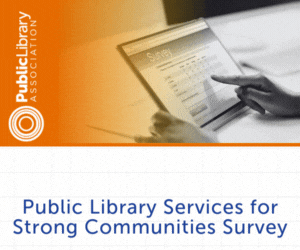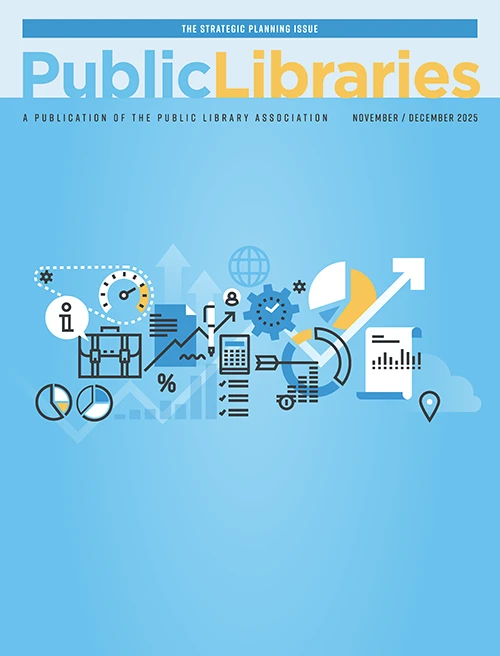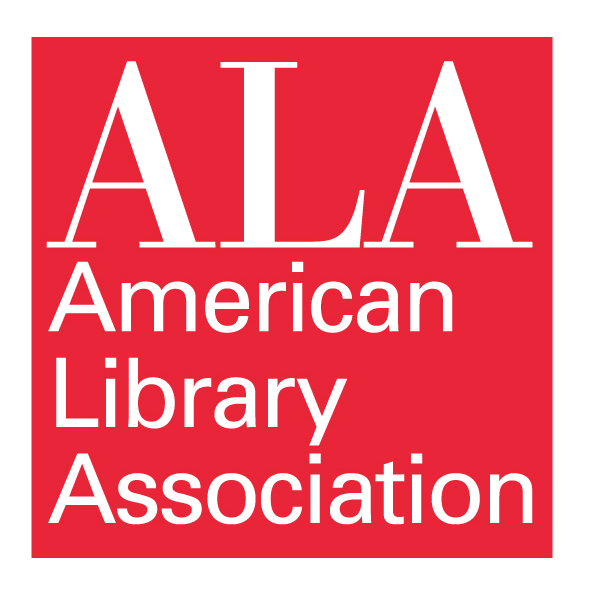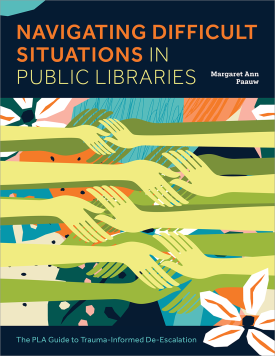Hire EDISJ
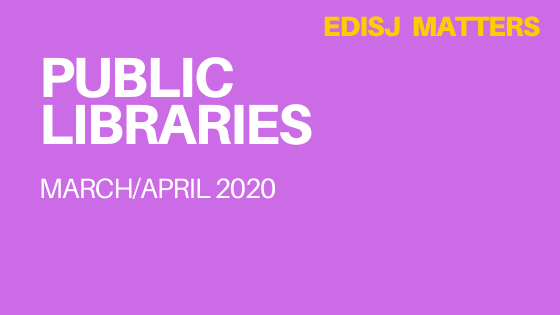
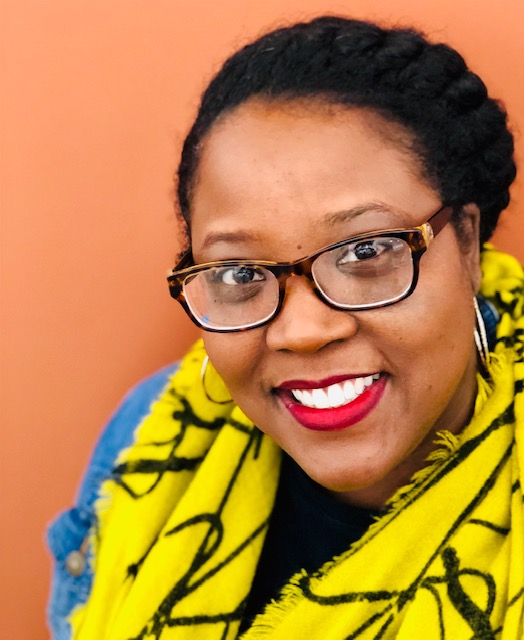
Postioning to Impact Communities
Christina Fuller-Gregory/christinafuller-gregory@gmail.com. Christina is Assistant Director of Library Services, South Carolina Governor’s School for the Arts and Humanities, and a PLA EDISJ Task Force member.
One of the most significant shifts that we’ve seen in the development of public library roles is the creation of positions with a targeted focus on supporting and moving forward equity, diversity, inclusion, and social justice (EDISJ). The development of EDISJ-specific positions provides powerful signaling that centering this work is a priority—a critical and necessary step towards truly embodying the idea that everyone is welcome at the library.
I had the opportunity to speak with five library leaders who are charting new territory in roles that allow them to affect change in library staffing models, drive EDISJ-related outcomes and initiatives, and positively impact communities:
Jessica Moore (she/her/ hers), Diversity, Equity, and Inclusion Officer, Indianapolis (IN) Public Library
Raemona Little Taylor (she/her/hers), Diana Lopez (she/
her/hers), and Amy Sonnie (she/her/hers), Education Initiatives Coordinators, Marin County (CA) Free Library
Ozzy Aloziem (she/her/hers), Community Connections
Program Coordinator, Denver (CO) Public Library
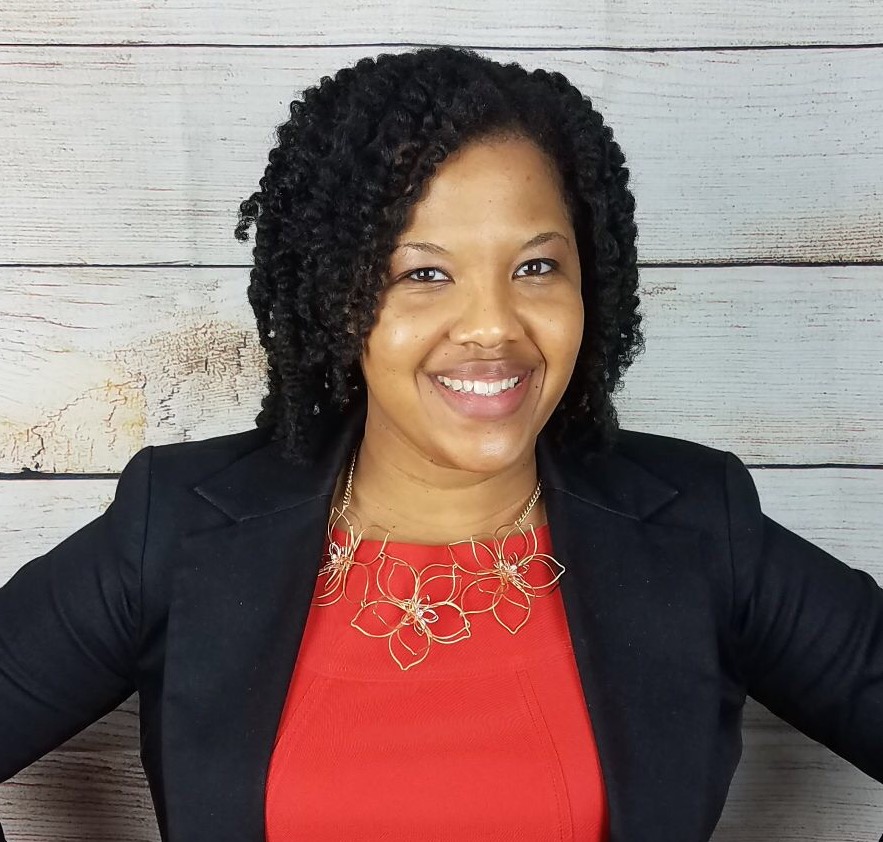
What is your position at your library? Share with us what influenced the decision to create the position as well as the process that led to its creation.
Jessica Moore (JM): I currently serve as the Diversity, Equity, And Inclusion (DEI) Officer for the Indianapolis (IN) Public Library. For more than fifteen years, I have worked in the nonprofit/government sector in various roles within and outside of traditional library service—court system, school district, and social service agencies. My work has primarily focused on cultivating
partnerships, engagement, and project development for immigrant
and refugee communities. Several factors were considered before creating the position, and there were challenges. One of the factors that created some difficulty was where the position would be placed within the organization. What kind of institutional power would the position
hold? As a public service organization, we are thinking constantly
about the needs of the public, but we also have workforce needs.
How do we create a position that is involved in both arenas? In the end, this position exists to examine equity throughout the organization—from collections to public services to the workforce. It is multifaceted and complex which is why it is so critical for there to be buy-in at all levels of the organization.
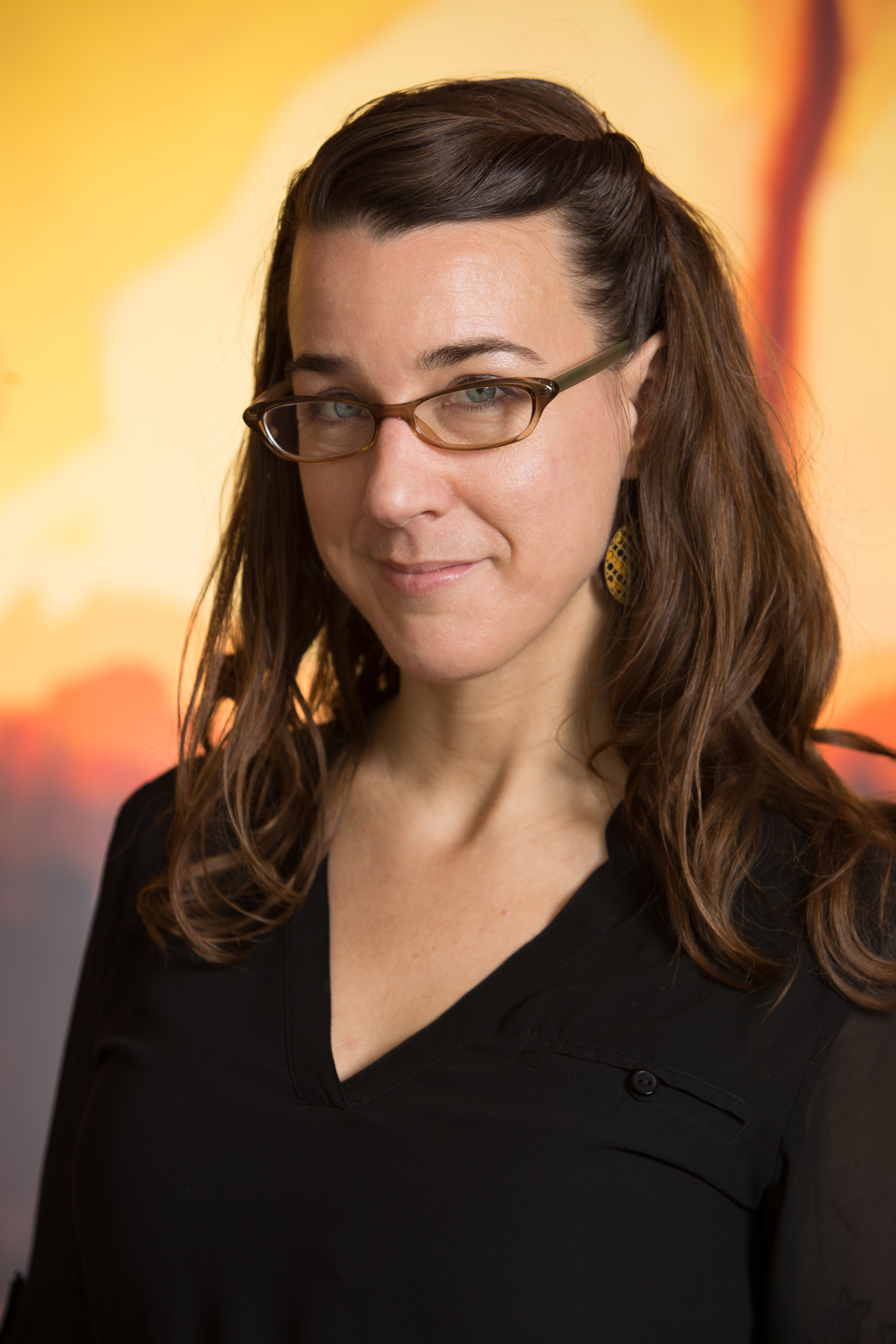
Amy Sonnie (AS): Our titles are Education Initiatives Coordinators and this position is a Senior Librarian role (equivalent to a Librarian III). Our director Sara Jones, who joined Marin County Free Library (MCFL) in 2014, was instrumental in making educational equity a priority in policy and practice. This new role was created in 2017 shortly after Marin County joined the Government Alliance on Race and Equity. The creation of this position also aligned with MCFL’s strategic plan and participation in the Marin Promise Partnership, a Strive Together affiliate, focused on educational equity through collaborative action
among libraries, schools, government, and nonprofits.
Originally the position was going to manage one branch and coordinate education initiatives in low-income communities across the county. During the recruitment for the original position, Sara realized that the county
needed more than one education initiatives coordinator. Now there
are three of us!
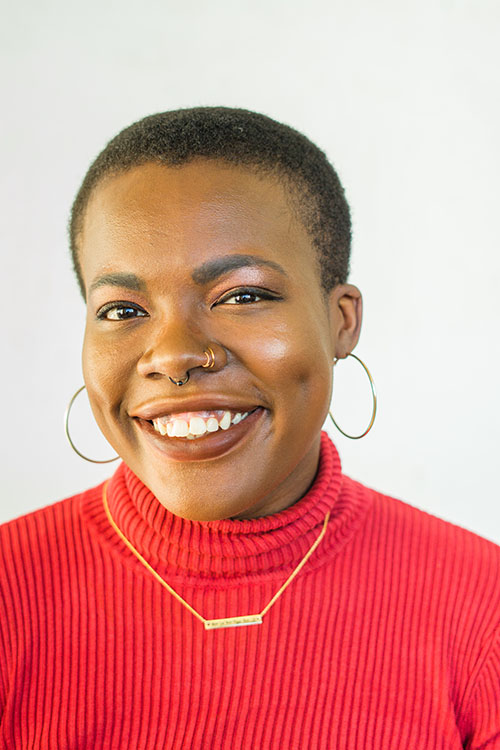
Ozzy Aloziem (OA): I currently serve as the Community Connections Program Coordinator. Denver Public Library (DPL) is leading the Building a Pipeline of Community Connection project—in collaboration with Multnomah County (OR) Library, Seattle Public Library, Queens Library, Hennepin County (MN) Public Library, and Cleveland Public Library—thanks to a grant received from the Institute of Museum and Library Services. During this one-year planning project, DPL will conduct a comprehensive research/assessment initiative using an equity framework to better understand effective strategies to reshape its workforce, so it reflects the diversity of the community. My role is to manage this project. This work and the process of creating EDISJ initiatives largely started with Hong Ha and James Allen Davis Jr., who are both senior librarians for DPL and serve on the EDISJ committee.
As we grow the capacity of libraries to recruit and retain diverse workers, what do you feel is the most important first step?
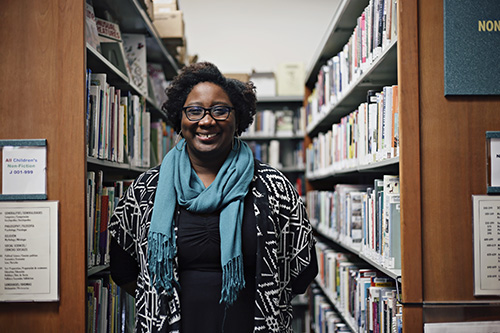
Raemona Little Taylor (RLT): I feel like the first step is acknowledging the long history of libraries as segregated spaces. Until libraries and librarians grapple with their history as gatekeepers for white dominant culture, they will struggle to create welcoming and inclusive workplaces where diverse workers feel like they truly belong. It can be a real challenge to work within institutions as the one and only Black, Indigenous and People of Color (BIPOC) staff member. We need to move beyond being tolerated to being celebrated. Racial equity work must be prioritized in libraries if we want to create inclusive workplaces that support BIPOC.

Diana Lopez (DL): I feel that connecting a new librarian of color with a mentor of color would be a great step in retention. Also, supporting professional development that is geared toward librarians of color would be tremendously helpful (such as the Joint Council of Librarians of Color, National Conference of African American Librarians, and REFORMA: The National Association to Promote Library and Information Services to Latinos and the Spanish-Speaking). I think that it’s crucial for managers to understand that they need to support their librarian of color differently than they would a white librarian, especially if the system they work for and the committees the person will be serving on are predominantly white. Check in with the librarian. It is very isolating to be the only person of color in a room of white people—especially when you are new. I suggest that white librarians seek out materials on whiteness and really commit themselves to the fact that there are going to be challenges. They need to be prepared for difficult conversations and to recognize that there is a lot to learn. Mistakes will happen but be honest about them. Own up to them, discuss, and apologize. Don’t get caught up in your white fragility and your own feelings. White managers who have never supervised a person of color, especially in a professional role, really do need to be educated.
How critical is the development of your role in signaling the importance of EDISJ initiatives in public libraries? What is the role of informal or grassroots organizing in supporting this work?
AS: Critical. Defining a formal role for equity initiatives sends an important signal to your community, which helps build trust. It also ensures there is infrastructure and accountability for deep community engagement and better outcomes—for the long haul. It’s crucial to invest in this work for the long term. Systems change and equity can’t happen through short-term positions or programs. Libraries that invest—like Marin, Seattle, Multnomah, Hennepin County, and Madison—are seeing a difference.
OA: My role has been critical in calling to light the specific reasons
why EDISJ initiatives in public libraries are profoundly important. I can completely dedicate my time and energy into EDISJ and EDISJ alone. This allows me to generate rich data about EDISJ-specific concerns, which allows DPL to more holistically examine gaps and areas for improvement. This leads to initiatives that are more fully formed, which hopefully leads to greater success upon implementation of EDISJ initiatives.
How have you been able to use your position to amplify the voices of diverse staff or to advocate for staffing that is reflective of your community? Describe one success or accomplishment you’ve had in this position.
JM: When I began in this position, I knew it was important to take time to gain some back-ground understanding of the experiences and perspectives of staff members, so I began a listening tour themed Histories and
Hope. I did not want to walk into a newly formed position and start doing “stuff” that was not meaningful. To date, I’ve conducted about sixty confidential listening sessions. There is a real benefit to practicing listening. Staff members are asked a series of questions about their past experiences within the organization as it relates to EDISJ and then asked what they hope for the future. I anticipated that themes would arise out of those sessions and they have. It is my goal to elevate and advocate for the concerns and hopes that staff members have expressed during our sessions.
RLT: As a team, the three of us are an example of success in recruiting diverse staff. Together, we represent historically marginalized groups within the library field with the following identities: Latina, black, white, LGBTQ+, and people with disabilities. We prioritize the same diversity in our daily work reflecting the diversity within our local communities in everything we do from hiring to program vendors to volunteers. Since starting in 2017, we’ve made diverse hiring a priority in every decision we make, MCFL has hired former youth technology interns (called WebStars) into permanent library jobs and has hired library assistants from the local community. Our West Marin and South Novato branches are prioritizing bilingual and bicultural staff, also hiring from the local community, and the county has a diversity hiring toolkit and a policy that we must ensure diverse panels for every interview (every interview panel must include gender and racial diversity).
EQUITY IN ACTION: TIPS from MARIN COUNTY FREE LIBRARY
Looking to mobilize your library and begin organizing and supporting equity, diversity, inclusion, and social justice (EDISJ)? Try these tips from Marin County (CA) Free Library:
- Make it a formal goal to close the opportunity gaps and reduce disparities.
- Recognize your equity champions and formalize that role even without a new hire or job classification. If you are a supervisor, make it a part of the work plan for staff with the skills, passion, and background for this work.
- Start from where you are. Formalizing equity in job roles and work plans is vital to “walking the talk” when it comes to institutional change, but you don’t have to wait. If you are passionate about this work, start from where you are, build deep relationships with impacted communities, and grow your institutional approach from the ground up.
- If you are a librarian who is passionate about racial equity and social justice: do the work, form the partnerships, demonstrate the value, and “organize up” to show your administration the value of embedding equity in your work, especially with youth and families. Use the GARE Libraries Issue Brief on Advancing Equity to make your case.
- Also, it doesn’t have to take new money; you can reallocate and rearrange to invest. Once you make reducing educational disparities your goal, it becomes clear where you need to prioritize your time and your resources.
Tags: EDISJ and Public Libraries, EDISJ Matters column, Hire EDISJ, recruiting and retaining diverse workers




